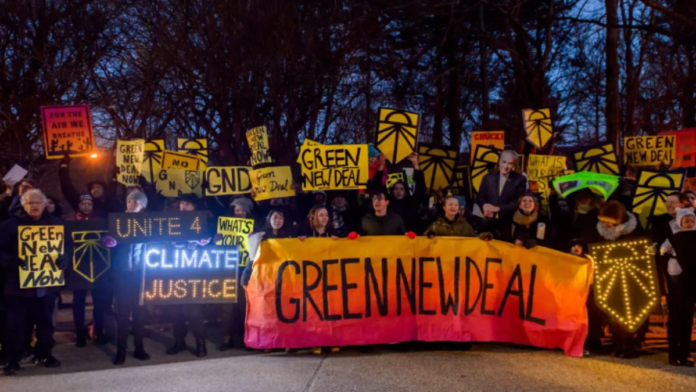The U.S. Senate is on track early next week to pass the Great American Outdoors Act, a bill designed to address the nearly $12 billion-dollar maintenance backlog facing public lands nationwide and to fully fund the Land and Water Conservation Fund (LWCF).
The bipartisan effort has been led by Sens. Cory Gardner (R-Colo.), Steve Daines (R-Mont.) and Joe Manchin (D-W.V.) and would be a huge victory for western states that are struggling with the financial burdens of maintaining public lands.
The Senate voted 80-17 on Tuesday to begin debate on the bill.
The bill would address the approximately $12 billion in deferred maintenance across the National Parks Service (NPS). According to the Property and Environment Research Center, “funding has not been sufficient to keep up with the maintenance needs of aging park assets and infrastructure” like hiking trails, visitor centers, roads, and historic buildings. The surging popularity of outdoor recreation in recent years as exacerbated the problems.
Western Wire has provided extended coverage of the bipartisan effort in the House and Senate to fix backlogged park maintenance and published a four-part series last year on national parks across the west and their ongoing funding challenges.
A report released by the NPS exemplified how the crucial role public lands play in the American economy.
The report said that in 2019, “328 million park visitors spent an estimated $21.0 billion in local gateway regions while visiting National Park Service lands across the country” which supported 341,000 jobs and $41 billion in economic output.
“Today, we now have the opportunity to move forward on the bipartisan Great American Outdoors Act, a conservation bill that will provide full and permanent funding for the Land and Water Conservation Fund and finally tackle the massive maintenance backlog plaguing our public lands and national parks,” Daines said.
Manchin, the leading Democrat sponsoring the bill touted its bipartisan supported.
“We have broad bipartisan support with 60 Senators signing on, which is representative of how important this bill is to every state,” Manchin said. “This is a shining example of Democrats and Republicans coming together to put politics aside to do what is best for conserving the natural resources of this great nation.
Passage of this bill will be a historic achievement, and I believe this will be one of the most significant conservation bills ever enacted into law.”
There has been opposition from Republicans to the legislation, however, according to E&E News.
Those concerns include Sen. Bill Cassidy (R-La.), who wants costal states like his that are major oil and natural gas producers to receive a greater share of royalty revenues from federal leases for environmental protection. Sen. Mitt Romney (R-Utah) is worried about new mandatory spending that would fall outside of Congress’s annual appropriations process.
The report indicated that opponents may use “poison pill” amendments designed to bring the bill down, although Senate Majority Leader Mitch McConnell (R-Ky.) moved to limit this.
The Hill reported that Sen. Mike Lee (R-Utah) attempted to get votes on five different amendments but that Gardner objected before the bill passed another procedural vote 65-19 early Friday morning.
The bill provides permanent and full funding for the LWCF, a program that has frequently dealt with funding issues throughout its history.
Established in 1965, the fund supports natural and cultural conservation projects around the country and infrastructure improvements for outdoor recreation. Its revenue is primarily generated from offshore oil and gas leasing.
Congress gave permanent legal authorization to the LWCF last year but didn’t address funding issues, which the Great American Outdoors Act would fix.
“The LWCF has increased access for Americans everywhere to hunt, to fish, to camp, and enjoy recreation activities on their public lands, the land that we own and hold as a country,” Gardner said during remarks on the Senate floor. “It has protected and expanded access for conservation in all 50 states, the territories, and in nearly every county.
LWCF is the crown jewel, as I said, of our nation’s conservation programs. It has broad bipartisan support,” he continued.
Sen. Lisa Murkowski, another key supporter of the bill highlighted the crucial role oil and natural gas operations play in funding the LWCF.
“LWCF, and the fund that will help with our deferred maintenance, everything relies on oil and gas revenues,” Murkowski said. “And so, for as much vitriol as there may be out there and criticism as the industry takes, this might be a good time to recognize that oil and gas production generates federal revenues, and it’s these federal revenues that fund these conservation priorities. Priorities for dozens and dozens of members here on this floor, and priorities for hundreds of stakeholder groups.”
President Trump has already indicated he will sign it into law if Congress approves the legislation.

